#literary review of canada
Text
The Berry Pickers by Amanda Peters #BookReview #NewBooks #LiteraryFiction #HistoricalFiction #Mystery #CatapultBooks
A four-year-old Mi’kmaq girl goes missing from the blueberry fields of Maine, and fifty years later the mystery is solved. #TheBerryPickers #AmandaPeters #BookReview #LiteraryFiction #HistoricalFiction #audiobookreview #catapultbooks #bargainsleuth
A four-year-old Mi’kmaq girl goes missing from the blueberry fields of Maine, sparking a tragic mystery that haunts the survivors, unravels a community, and remains unsolved for nearly fifty years.
July 1962. A Mi’kmaq family from Nova Scotia arrives in Maine to pick blueberries for the summer. Weeks later, four-year-old Ruthie, the family’s youngest child, vanishes. She is last seen by her…
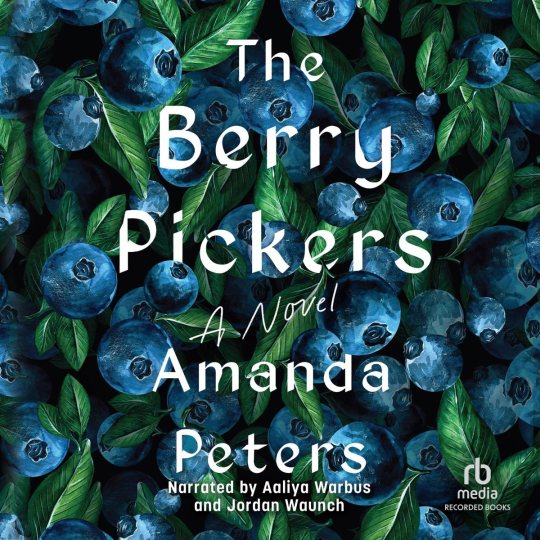
View On WordPress
#Amanda Peters#Audiobook Review#Blueberry Picking#Book Review#Canada#Catapult Books#Historical Fiction#Jordan Waunch#Literary Fiction#Maine#Mi’kmaq#Mystery#New Books#October 2023 Books#Recorded Books Inc#The Berry Pickers
2 notes
·
View notes
Text
Book Review: 101 Letters to a Prime Minister: The Complete Letters to Stephen Harper by: Yann Martel
Initial Thoughts: Some books are written to be relevant to their time of publication, and others are meant to be relevant for generations. This book fits somewhere in between. Stephen Harper (former Prime Minister of Canada) was once asked what his favourite book was. He replied that it was the Guinness Book of World Records. As you can likely imagine, this answer stirred up a lot of bewilderment…

View On WordPress
#101 Letters to a Prime Minister#Book#Book Review#books#canada#Life of Pi#Literary#Non fiction#Politics#review#Yann Martel
0 notes
Note
why do you like the vampire chronicles?
- a fellow fan
Ooh boy, this will probably be an essay blog post at some point, but, I shall endeavour to give the TLDR version to the best of my present ability. None of us really changes over time. We only become more fully what we are and memory is a monster.

Do not ask me to recall my age, I am 20 now, though I often feel like Louis and Lestat, inhuman and haven't been human for 200 years. Plus the pandemic destroyed my sense of time.
Before the pandemic, a dear friend of mine introduced me to gothic literary vampires, I had just read Shelley's Frankenstein and The Picture of Dorian Gray of my own accord, and he cast me as Mina Murray-Harker in his production of Dracula (1897) opposite one of my best friends as Lucy Westenra himself as Jonathan and one of our aspiring villain actors as Count Dracula himself. I then got hooked on Dracula (the 1897 novel) and following that I wanted more vampires. We watched the 1994 IWTV Neil Jordan film together and I immediately took Lestat as my pathetic bi meow meow. I read the 1976 novel not that far after and started role-playing and cosplaying Lestat as soon as I understood him enough to make him my bi pathetic meow meow. I wouldn't pick up the chronicles again until catholic school and the move to Canada.
When I was in middle school I was a constant victim of bullying, mostly by the white rich kids for being brown, and vaguely gothic in inclinations and "witchy" and "other." My dad was also emotionally overbearing and expected a lot at an early age from me. He has since gotten better and I'm no longer anyone's victim, but, it's worthwhile to note I was victimized (past tense) for a long time. I've also had my fair share of misogyny + anti brown racism flung at me, and I am bi and genderqueer. For the record I forgive my middle school bullies, we were simply kids who didn't know better. Now, do better. I've also been the victim of emotional abuse and gaslighting, while it never escalated to physical that sort of violence even if emotional violence sticks with you. But as mentioned, victimized, in past tense.
I moved to Canada and suffered the indignity of the Catholic school system. I quit after a year and after their queerphobia made international news. But not before a brief run as a spiteful bi as fuck atheist and picking up The Vampire Lestat, finally.

Before the pandemic, I felt like Louis de Pointe du Lac and Mona Mayfair, during the pandemic and in catholic school I felt like Nicolas de Lenfent, following the pandemic and up til the present I aspire to be something of a Lestat de Lioncourt and Rowan Mayfair meaning less cynical, unlearning my shame, confident, clever at least intellectually but foolishly in love with the beauty of humanity. Now, we're here.
IWTV 1994 lost in adaptation
Vampire Reviews: IWTV 1994 ft @elisaintime
What Constitutes Evil?
Vampire Reviews: The Vampire Chronicles ft @elisaintime
Vampire Reviews: The Vampire Lestat ft @elisaintime
Late Interview with the Vampire author Anne Rice remembered by trans woman she helped come out.
Tagging: @covenofthearticulate, @monstersinthecosmos, @elisaintime & @the-brat-prince-1760, @dontbesylly & @i-want-my-iwtv (no pressure to reply, I just thought y'all would appreciate this story).
#anonynous#meera answers#answered#anne rice#vampire chronicles#the vampire lestat#bisexual#queer#lgbtq+#dracula 1897#dracula daily#re: dracula#dracula (novel)#dracula (1897)#vampires#lestat de lioncourt#nicolas de lenfent#rowan mayfair#mona mayfair#louis de pointe du lac#vc books#monstrous other#iwtv 1994#queue are more than what people see#abuse mention cw#gaslighting cw#religion cw#long post tw#overbearing parents#long post
44 notes
·
View notes
Text
if you talk about like. classical liberal or early american political thought and you never bring up slavery or empire you are actually violently intellectually dishonest. it should just be unthinkable that you could say something like the following with a straight face.
Individual liberty, whether rugged or not, is certainly at the heart of the American political project, expressed in its founding documents, such as the Declaration of Independence.
(Bruce K. Ward, Right Stuff, Literary Review of Canada January-February 2024)
individual liberty was at the heart of the American political project? how do we still let this level of open revisionism slide? it was a slave state. what next? "at the heart of the third reich was a commitment to the prevention of arson"? you should be forced by the merest ten seconds of thinking to encounter the real point, which is that american political thought is characterised by a contradiction between a nominal focus on liberty and an actual violent tyranny, not just a potential tyranny resulting from "too much" democracy.
It was Rousseau himself who acknowledged that in the liberal state he envisaged, based on the rightness of the general will, the recalcitrant would be “forced to be free.” In its extreme Communist form, this apotheosis of the state was to include the attempt, in the words of the Czech Canadian novelist Josef Skvorecky, to “engineer human souls.”
this has never been a problem. "we made the people too free and now they've enslaved themselves" has never happened. it's a conservative rhetorical ploy, it's an inversion in thought of the true premise - the thought that "subject and a sovereign are clean different things," the fear of the rabble that needs to be held down.
this should be the true struggle of modern liberals - how do you reconcile a universalist democratic ideal with the fact that the existence of anglosphere parliamentary democracy is fraught with its relationship to empire, the monarchy and landownership at home! i know this is me being mad about effectively marxist 101 problematization of the ideological framing of western democracy. but is the liberal project so weak that it simply cannot sustain itself without this kind of self-deception? is a liberalism that is actually committed to those values in some sense structurally impossible?
#examining the notion of 'democracy under threat' through the lens of democracy's effective historic nonexistence would be very interesting#the burden of the chosen art form#i guess
14 notes
·
View notes
Text

About Heather Babcock:
Heather Babcock's debut novel Filthy Sugar was published by Inanna Publications in 2020. She has had short fiction and essays published in many literary journals including Descant Magazine, The Humber Literary Review and The Toronto Quarterly and has work forthcoming in Write Magazine. In 2015, her chapbook Of Being Underground and Moving Backwards was published by DevilHousePress. Babcock has experience as both a performer and an organizer of open mic and reading events. An avid movie buff, Heather was the lunchtime speaker at the 29th annual Vintage Film Festival, held at the Capitol Theatre in Port Hope. She spoke on the subject of "Dangerous Dames: Celebrating the Women of Pre-Code Gangster Movies". Babcock is currently working on a novel tentatively titled The Memory of Crows. She is a proud member of the Writers’ Union of Canada.
6 notes
·
View notes
Text
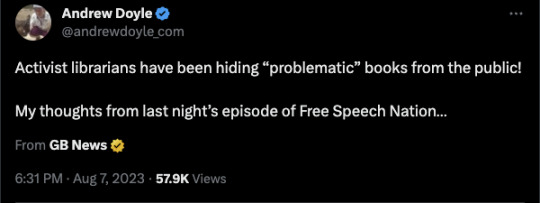
youtube
'If activists are hiding books from you, the best thing you can do is seek them out and read them!'
One of the strangest developments of the culture war has been the rise of authoritarian librarians. It sounds ridiculous doesn't it? Surely librarians are there to support education and to enable the dissemination of literature and knowledge.
But this week it was reported that the library service in Calderdale Council has been hiding books by feminists such as Helen Joyce and Kathleen Stock. The Labor-run council confirmed that although these books would still be in the catalog and they could be requested, they were quote, "not visible on the library shelves." This is very odd.
Now, I've read the books in question by both Helen Joyce and Kathleen Stock, and they are rigorous, intelligent and important studies concerning one of the key issues of our time. And yet these librarians are treating them as though they are toxic, as if members of the public who happen upon them while browsing might somehow be instantly corrupted.
And yet we shouldn't really be surprised at all. The rise of Woke Librarians, however ludicrous that sounds, is a real thing. Now, I should say from the outset that I've nothing against librarians. Some of my best friends are librarians. But there is something about the profession that seems to attract the kind of paternalistic pharisee who believes that it's their job to protect others from wrongthink.
Let me give you some other examples. So a few years ago, it was reported that the former poet laureate Ted Hughes was included on a watch list created by the British Library because of a family connection with a slave owner. Turns out the connection was false and the Library issued an apology. But why was the foremost library in the UK creating this kind of watch list in the first place? Well, it was because in the wake of the killing of George Floyd, the library had commissioned what they called a "decolonizing working group" which decided that they should review the collections and draw up a list of any authors with problematic pasts. This same group also claimed that the library's main building was a monument to imperialism, because it looked a bit like a battleship. I'm not even joking.
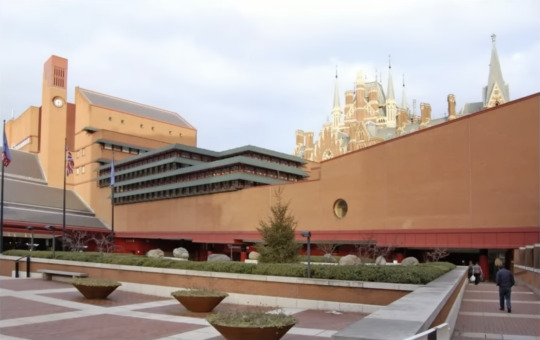
And in 2021 the Waterloo Region District School Board in Canada identified and removed books that were considered quote, "harmful to staff and students."
At the same time, other school libraries in Canada were disposing of copies of Harper Lee's novel To Kill a Mockingbird and Margaret Atwood's The Handmaid's Tale following complaints about quote, "racist, homophobic or misogynistic language and themes."
And then there was the Ottawa Carlton District School Board which removed copies of William Golding's Lord of the Flies on the grounds that the themes of the book were quote, "outdated and too focused on white male power structures." Had they even read the book? If Lord of the Flies really is a comment on white male power structures, it can hardly be said to be an advertisement.
And then of course there's the whole trigger warning phenomenon. When archivists at Homerton College in Cambridge were engaged in a project to upload their collection of children's literature to the internet, they decided to flag a number of books with trigger warnings. Books such as Little House on the Prairie, and The Water Babies, and various books by Dr Seuss. And the archivists said they wanted to make their digital collection quote, "less harmful in the context of a canonical literary heritage that is shaped by, and continues a history of, oppression."
But books by Dr Seuss aren't oppressive or harmful, even if they do contain outdated racial stereotypes. They were written a long time ago, and readers understand that. Of course, that hasn't stopped the estate of Dr Seuss from withdrawing a number of titles from sale altogether. You can't even buy them anymore.
But the most revealing aspect of this story from Cambridge is a statement that the archivists at Homerton College put out. They said it would be a quote, "dereliction of our duty as gatekeepers to allow such casual racism to go unchecked." Gatekeepers. Now I thought they were meant to be custodians not gatekeepers.
And this is what is known as saying the quiet part out loud. Because really all of this behavior is edging towards censorship. For librarians and archivists to apply warnings to books or to hide them from the public, it's for them to say, "we don't think these books are good for you, we don't trust you to read these books and not to pick up some bad ideas, we must protect you from their influence." In other words, they're treating the public like a parent treats a small child.
And we shouldn't stand for it. Even the application of trigger warnings is a problem in and of itself. True, the books aren't being censored, but a trigger warning buys into the false belief that words and violence are the same thing. It implies that these books are dangerous, and in the wrong hands could cause trouble.
And it's not just libraries. Increasingly we're seeing museum staff attempting to protect the public from artifacts that they're meant to display. So last November, the Wellcome Collection in London shut down its key exhibit, one which dated from the 17th century, because it perpetuated quote, "a version of medical history that is based on racist, sexist and ableist theories and language."
Now we all know that ethical standards change over time and that people from the past held different views from us. Often views that we would consider objectionable. So why don't museum curators understand this too? Why is a museum preventing us from seeing artifacts from the past, when they should be facilitating access? Why is it that so many art galleries now insist on adding little labels next to paintings by great masters to say how much they disapprove of their values, as though the writers of these little sermons would have thought any differently if they had been born hundreds of years ago?
I don't care whether you disapprove of Hogarth's attitudes towards minorities, I just want to appreciate his work without having these soft-witted puritans breathing down my neck.
What we're seeing here is ideological capture. it's the same reason why the Catholic Church created an index of forbidden books which it had kept updated for 400 years right up until 1948. it's the same reason why Mary Whitehouse wanted certain TV shows banned back in the 1960s. It's the same reason why the BBC has censored scenes of old comedy shows such as Faulty Towers on the BBC streaming service. It's the same reason why staff at publishing houses revolt when there's a new book coming out by Jordan Peterson or JK Rowling or some other problematic author. And when the authors aren't as well known as Peterson or Rowling, the staff often get their way.
And if you don't think any of this is authoritarian, what about the time when the body in charge of elementary and secondary schools in Southwestern Ontario authorized the ritualistic burning of books if they contained outdated stereotypes, in what they described as a "flame purification ceremony." Almost 5000 books, including copies of Tintin and Asterix, were removed from shelves and were destroyed or recycled because of course, only the most [rogressive people in history have ever burned books.
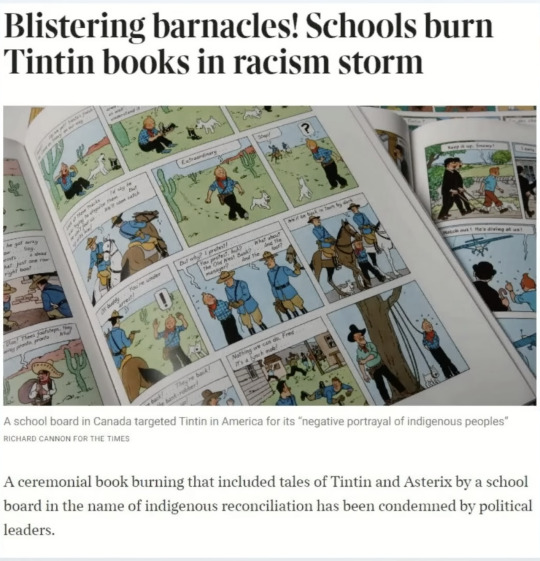
[ Source: The Times, via archive.today ]
It sounds preposterous, but the proliferation of activists in libraries, museums, schools, publishing houses, the arts and the media, makes complete sense when one considers that the devotees of this new woke religion have a vested interest in controlling the limits of acceptable thought. To use their own words, they are the gatekeepers.
But as adults in a civilized and liberal society, we don't need to be coddled, particularly by people whose capacity for critical thinking has been stunted by ideology. They say it's for our own good, but what tyrant in history hasn't made a similar claim?
So enough with the woke librarians. If activists are hiding books from you, the very best thing you can do is seek those books out and read them. These petty little authoritarians will do anything to control your speech and your thoughts. Don't let them get away with it.
==
We are reliably informed that it's only right-wing conservative Xians who want to ban or burn books. But it isn't true. There is a mirror image of the same Puritan authoritarianism on the woke left.
#Free Speech Nation#Andrew Doyle#librarians#libraries#public libraries#queer theory#gender ideology#censorship#woke librarians#woke activism#woke#wokeness#wokeism#wokeness as religion#cult of woke#authoritarianism#woke authoritarianism#gatekeepers#for your own good#paternalism#ideological capture#ideological takeover#book burning#flame purification ceremony#religion is a mental illness
17 notes
·
View notes
Text
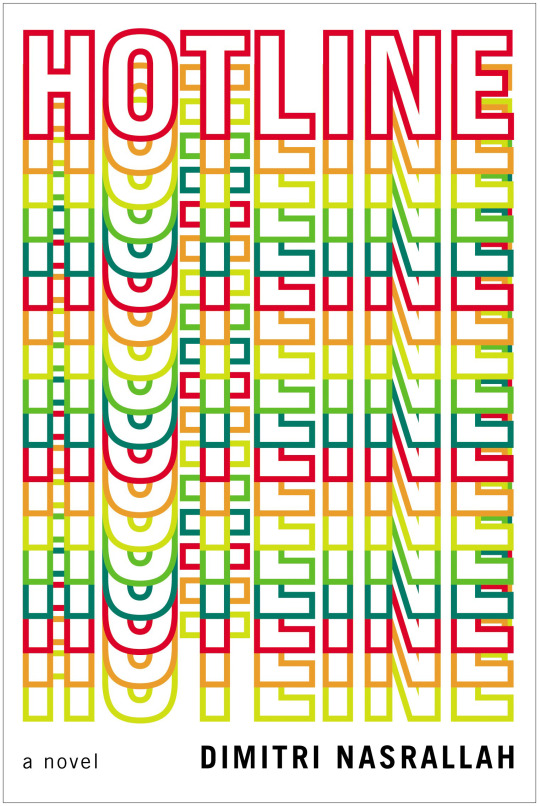
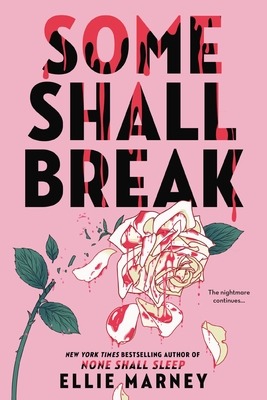

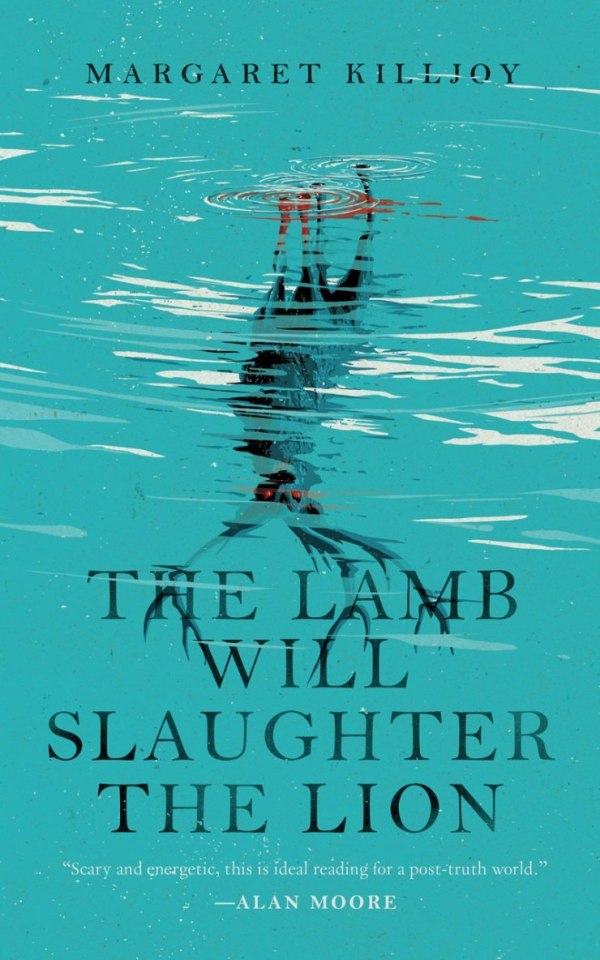
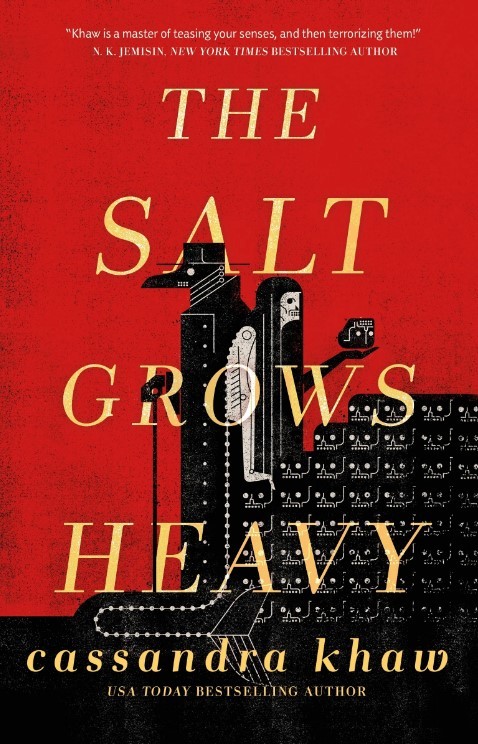


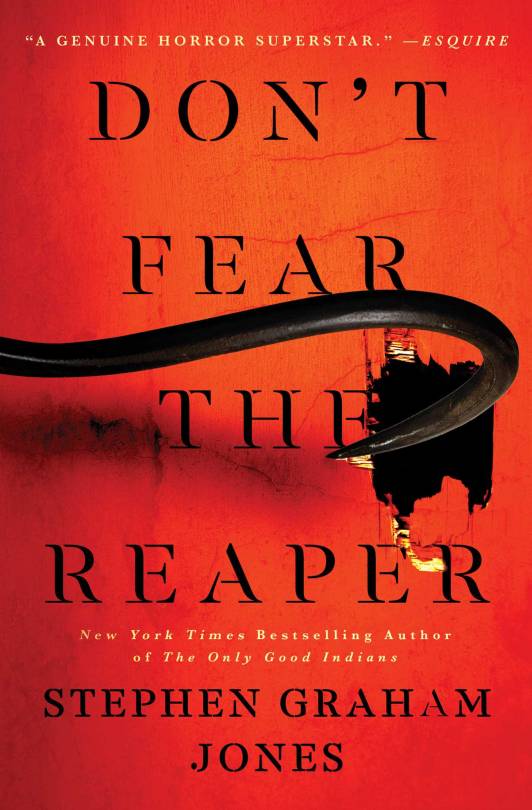
REVIEWS OF THE WEEK!
Books I’ve read so far in 2023!
Friend me on Goodreads here to follow my more up to date reading journey for the year!
___
180. Hotline by Dimitri Nasrallah--⭐️⭐️⭐️⭐️⭐️
I knew I wanted to read HOTLINE from the moment I saw the cover and read the synopsis months ago. It offered everything I love in literary fiction: Immigration, a character growing through their experiences, and an interesting point of view that differs from my own when it comes to the immigration experience.
Reading HOTLINE was like seeing a story from the perspective of my immigrant parents. Much like the son in Nasrallah's novel, I came to Canada at a young age. My parents fought tooth and nail to make ends meet and to make sure I had a better future than the life they left behind. Our country wasn't war-torn, but it was going through a special period where food was incredibly scarce and the police handed out jail sentences for too many things. Many people had "one foot at home and one foot in jail" because of all the side hustles they had to do in a country that frowned upon that.
So, seeing a mother striving to do what she could with what little resources she had was incredibly eye-opening. Making the incredibly hard decision of leaving a child alone so you can provide for them was another relatable instance. HOTLINE was such a captivating exploration of how parents sacrifice and compromise in the present for a hopefully better future. It is a complicated story of grief for both someone lost and a dream destroyed by the stereotypes and biases that live in a new country.
It was also jarring to see how life might have been like in the 80s in comparison to today's society, much like the differences between the 90s (when we immigrated) and today. The hustle was real, but (in this case) it paid off in the end--which was a welcome surprise, even if it wasn't entirely a roses and rainbows story. I liked the reality of how messy life can be and how even though a job we never thought we'd have is the only thing keeping you in a less-than-perfect home.
HOTLINE also had a unique level of community that I loved to see. It proves that a village-full of support makes a massive difference. While there were moments of the MC's self-doubt and fear, there were many moments where the reader is reminded that hope can exist even in the darkest moments.
I felt like I was catching a glimpse into a real home and I'm so grateful for the opportunity. Beautifully written! I highly recommend this, especially for those who are constantly seeking out immigration stories.
___
181. Some Shall Break by Ellie Marney--⭐️⭐️⭐️⭐️
I loved the first book in this series (duology?), so I was so incredibly delighted to see that there was a sequel!
I think one of the huge benefits that the first book had was that I knew absolutely nothing about it. I wasn't expecting it to be a YA fictional version of MINDHUNTER, which was an incredibly intriguing nonfiction text about how Forensic Profiling came to be and the process behind it. Seeing a fictional story from a teen POV was interesting and darkly fun.
In this sequel, we don't get as much of that exploration that we did with book one, instead we're mainly focusing on catching the one big bad person and while there are cameos and many, many twists and turns, it wasn't as great of a read as the first one.
This isn't to say that I didn't still enjoy this book! I remember thinking, "Wow, I really do enjoy this author's writing." I was hooked and I really wanted to see where the story would take these characters. It was also kind of sad seeing where trauma can take a person and how far they are willing to go to run from said trauma.
There was a certain level of madness to this book and the evil mastermind behind some of the characters. My mind is doing a bunch of twists and turns just trying to write this review.
I highly recommend the first book in this series, especially with the Fall season upon us. Spook yourself with a YA crime thriller. I think knowing that this is YA makes it all that much more creepier.
___
182. The Book of Accidents by Chuck Wendig--⭐️⭐️⭐️.5
I've been eyeing THE BOOK OF ACCIDENTS ever since it came out. I wanted to read it, but I won't lie: the size of it intimidated the hell out of me. I finally bit the bullet when another book I was reading recommended it and I thought, "Why not? It's the perfect season for it."
I'm glad I finally read it, if not for the creepy atmosphere of it, but for the writing itself and how reminiscent it was of Stephen King. I love a good spooky King novel and this one delivered!
Some of the twists in this book were a bit wild, but they all worked together in the end. By the conclusion of the book, the length made sense because we needed to get a well-rounded story. However, during the reading of the story, I did start wondering when it would end. I enjoyed the multiple perspectives, but I kept thinking, "Okay, what's next? Why do I still have five hours left in this audiobook?"
I DO think the concept of THE BOOK OF ACCIDENTS was really intriguing, especially when we start to consider the potential meanings behind the book. Wendig's novel explores boyhood and the consequences of actions and generational trauma. The What-if's of THE BOOK OF ACCIDENTS is probably, to me, the best part because we get to meet a cast of characters that give us a bigger picture of what could have been.
By the end, I did have some questions that were left unanswered, but for the most part, it was a pretty satisfying conclusion. I didn't like the mom and how her mentality worked at times--but it also shows how imperfect we can be as humans. I think that's one of the things I love the most about Horror. Too often we look for the shock and awe in the genre, but forget how complex the exploration of humanity can be in Horror.
Anyway, I'd recommend it if you're a fan of Stephen King. While Wendig isn't exactly as verbose as King, his ability to set a mood and a setting was very reminiscent of the Horror master. If you don't mind the length, then definitely add this one to your TBR list!
___
183. The Lamb Will Slaughter the Lion by Margaret Killjoy--⭐️⭐️⭐️⭐️
I really enjoyed Killjoy's novella and how it creeped me out while reading it in the middle of the night. Although short, it felt heavy enough that I couldn't read this in just one sitting. Which is both a good and eh thing.
The heaviness of the novella is a good thing because it means that I felt like the pages held a lot of meaning. THE LAMB WILL SLAUGHTER THE LION explored grief, the power of love (as cliche as that sounds), family, society and its downsides, and of course, the topic of Power. What does it mean to have power? What do the different kinds of power look like?
The heaviness of the novella can be a bad thing because it sometimes lost my interest. I felt like even though it was short, it lagged in some parts. I wanted answers, but the writing sometimes felt cluttered enough that the answers were always on the next page and, sigh, I was already worn out from reading what I had just read. This is most definitely a me problem, but having just come off two novellas that didn't give me this issue, I found it noticeable enough to note in this review.
I AM super excited for the sequel, though. The way things were left at the end of this book had me genuinely excited to see where Killjoy takes the story!
The characters were all interesting and occasionally morally grey (as can so often happen when magic is involved alongside the concerns we may have for modern-day society), and the topics explored were timely and interesting. If you're looking for an entertaining Queer horror novella with a beautiful cover, then this one is for you!
___
184. The Salt Grows Heavy by Cassandra Khaw--⭐️⭐️
I'm either too dumb to understand this book, or I'm one of the few who fell through the cracks with this one and just didn't enjoy it. Some of my friends have read this and they've all enjoyed it thoroughly. Me? I read this and as I'm writing this review, I still have no idea what this book was about.
I know the...general gist of it. But for the most part, this was a blur and I'm lowkey disappointed because I really enjoyed Khaw's haunted previous book.
I'm glad others were able to enjoy this so thoroughly, but it was truly not for me.
___
185. Those Across the River by Christopher Buehlman--⭐️
THOSE ACROSS THE RIVER, at its core, had an interesting story premise. Did it have creepy moments? Yes, it certainly did. There were some scenes that were downright gruesome and I'm sure will serve as someone's nightmare fuel. The pacing was great and the twists were entertaining, if a bit predictable. So, why am I giving this a one star rating? Well...
As a historical fiction Horror novel, I expected some of the language in this book. Having read some of Stephen King's older books, I'm no stranger to derogatory language in the Horror genre--especially when they're historical fiction novel. This book, however, was published in 2011 and used racial slurs with such relish that I started to flinch at the words (not that I normally don't--I do, but it was so prominent in this book that it started to overshadow some of the Horror of the book.)
I've also never commented on the descriptions of women in older Horror books because well...given the time they were written in, it was expected. I don't condone it, but some of these books are truly a product of their time. But a book published in 2011 referring to a woman as a dog during sex and then just...treating her as both a sexual and plot device in this book was...a lot. And the irony is how strong she is as a character in her own right. This strength could have been further explored if she had been given a chance by Buehlman. Instead, she is first the property of one man at a young age and then the property of another man, who dehumanizes her during sex.
"Dayla, the book is set in the 1930's!" That's fine, but you can write a woman set in that time without dehumanizing her like you're writing her character in a 70's-80's era of Horror.
So, while the horror of the book is creepy and the twists were great, there were some jarring moments of discomfort in this book that were too much for even me, a King fan. (And that's saying a lot, because those who've read older King know how messed up his writing can be.)
ALSO: Super creepy how there is a scene where a FOURTEEN year old girl catches the male main character's attention. And he actively has to remind himself that SHE IS FOURTEEN. I had finished writing my review and had to come back to add this because I had blocked it out of my head. She is described as "simple", I believe, and while he catches himself "flirting" with her, his wife mentions that she's a little jealous. Like, wtf. LMAO.
Anyway, read this if you'd like, but be prepared. I don't know if I'll read more stuff by this author. We shall see!
___
186. I Survived the Joplin Tornado by Lauren Tarshis--⭐️⭐️⭐️
I knew close to nothing about this tornado, but it was definitely fascinating to read about it, especially from the perspective of a child!
I think one of the things that makes these books a bit of a challenge for an adult to read (me, I am this adult) is the suspension of disbelief. I'm glad these characters always have hopeful endings full of miracles, especially because the readers these are targeted for are super impressionable. But...the more I read of these, the harder it is for me to believe all the happy endings. I'm definitely happy that characters like the mc in this one are able to walk away from this disaster, but it's just something I've been noticing.
Maybe I'm growing a little jaded from these books LOL.
___
187. Don't Fear the Reaper by Stephen Graham Jones--⭐️⭐️⭐️⭐️
Oh this book was FUN. Yes, the context is dark and murderous, but this one definitely had a lot more going on in it (action-wise) than the first book. I didn't know what to expect with this one because while I enjoyed the first book, I definitely thought it was more of a slow burn horror. This one dived right into the horror!
If you've ever watched the SCREAM movies from the very first one, then you are familiar with Sidney's progression as a character. We see her go through so many stages of PTSD and during all of that, she becomes the ultimate Final Girl. We see the same thing with Jade, the MC of THE INDIAN LAKE trilogy. Her denial, PTSD, and disassociation with her past self was unexpected but also realistic. She's the one who cried wolf once, wasn't believed, and now is watched again to see if she will cry wolf again. She has the pressure of being a survivor and she tries over and over again to pass on that legacy to someone else who could potentially be another Final Girl.
Jones's novel takes place during the holidays, which means that we are in a blizzard of snow and blood. Imagine if all of the killing in the first book were spread out throughout a whole novel and you'll have a better understanding of just how wicked this book was. It felt like I was reading a cursed sequel of a horror classic that was actually...really, really good? It was campy, heartfelt, had many twists, and some pretty intriguing Indigenous touches that made this all the more unique.
I so highly recommend DON'T FEAR THE REAPER. It was such a great read for the Autumn season (any season really), and lived up to my expectations. Will definitely be picking up the final book in the trilogy when it comes out!
___
Have you read any of these books? Let me know your thoughts!
___
Happy reading!
#Review#Reviews#book reviews#book blog#book blogger#Features#on writing#on reading#my writing#my opinion#book list#books#booklr#reading#bookish#read#bookworm#bookaholic#book addict#book thoughts#long text post
13 notes
·
View notes
Text
Aboriginal, Gaelic, and Cornish stories about ancient coastal landscape and environmental change on the seashore. Peer-reviewed article documenting impressive age and accuracy of stories, some stories probably thousands of years old, passed on by oral tradition. Specific examples and case studies of stories from Australia and the British Isles. Oral storytelling as a source of historical information. “Literacy,” Euro-American academic hierarchies of knowledge, and the legitimacy and “scientific” accuracy of Indigenous knowledge.
---
In many long-enduring coastal cultures, there are stories – sometimes mythologized – about times when pieces of land became separated from mainlands by submergence, a process that created islands where none existed before. [...] Preserved in oral traditions, memories of land submergence, plausibly attributed to multi-millennial postglacial sea-level rise, are now known from 27 sites along every part of the Australian coast [...]; all traditions are contained in stories repeatedly communicated between generations that recall when the coast was further out to sea, when people utilized the now-submerged land, and where what are now offshore islands were contiguous with the mainland. They include stories about the inundation of Spencer Gulf and the creation of islands therein, including Wardang Island (Waraldi) that became an island 8500–7400 cal BP, an event recalled in various extant Narungga (Aboriginal) stories [...]. Memories of submergence communicated in comparable ways in Haida Gwaii and Heiltsuk (Canada) traditions [...].
---
There is a growing acceptance among scholars of the validity and importance of oral traditions as historical sources, a non-literary archive of stories ‘encoded in ecological, paleontological and archaeological localities’ [...]. Indigenous scholars have been advocating for the inclusion of their ways of knowing in scholarship for decades, calling for the decolonizing of historical methods and the rejection of the perception of oral traditions as an inferior source of knowledge. [...]
---
Acclaimed Lardil storyteller, Dick Roughsey (Goobalathaldin) explained how ‘in the beginning, our home islands, now called the North Wellesleys, were not islands at all; but were part of a peninsula running out from the mainland … the Balumbanda people came along that peninsula long before it was cut up into islands’ (1971, 20). [...]
Many Indigenous groups in South Australia, including the Ngarrindjeri, Ramindjeri and Jarildekald, have told stories about a time when the (now-) offshore island named Kangaroo Island was connected to the mainland [...].
---
There are numerous stories that recall (or can be interpreted as recalling) the effects of sea-level rise [...], particularly off the coast of North Uist [...]. A good example refers to the now-uninhabited Monach (or Heisker) Islands, where its 19th-century residents recounted oral traditions about the time when these islands were contiguous with North Uist. A clue lies in the origin of the name Heisker, from the Gaelic aoi-sgeir meaning isthmus-skerry [...].
Closer to the North Uist mainland is the island of Baleshare where there are legends recalling ‘the walls of ruined cottages … underwater off the western shore’ (James and Duffy 2003, 43). On nearby Kirkibost Island, ‘the sea now occupies fields which formerly produced fine crops of bear or barley’ (MacRae 1845, 163). [...]
A better-documented example refers to the tradition among the people of Berneray and Pabbay Islands, today separated by 3.5 km of ocean, that ‘in former times the two islands were only separated by a very narrow channel, so that people could shout across and be heard, or even throw things across’ (Elton 1938, 287), a story obtained in 1935 from three independent sources. [...]
---
Of interest also are the ways other than storytelling in which memories of islandization were sustained in largely oral contexts. One way was in the names of places, a good example being the alternative name for the Monach Islands (Scotland) as Heisker or aoi-sgeir (isthmus-skerry). Off the south coast of Cornwall (England), the Cornish name for St Michael’s Mount is Carreg Coedh yn Clos, the ‘grey rock in the wood’, which recalls the time when this (now-) island was a hill within a forested part of the mainland (Curran 2000). In northeast Australia, the Aboriginal name mudaga (the pencil pine Athrotaxis cupressoides) refers to a place (now underwater) between Fitzroy Island and the mainland where these trees grew when sea level was lower [...].
---
Where such knowledge could not be written down, it was spoken (and sung or recited or performed) but in colonizers’ worldviews, this was not history but fable, akin to the tales of the Brothers Grimm and Hans Christian Andersen (Mahuika 2019). Western epistemologies divided history into prehistoric (non-literate) and historic (literate), creating a hierarchy with the former deemed inferior. [...]
---
Text by: Patrick Nunn and Margaret Cook. “Island tales: culturally-filtered narratives about island creation through land submergence incorporate millennia-old memories of postglacial sea-level rise.” World Archaeology Volume 54. June 2022. [Bolded emphasis and italicized first paragraph added by me.]
137 notes
·
View notes
Note
Your review of that racist whitewashed Native American book is exactly why I have mixed feelings about the concept of the literary genre of historical fiction
That's fair. Personally I really like historical fiction & it's probably my favorite genre to read, but where I think I start disliking certain books in the genre is when people invented specific things & go WAY outside of actual historical events specifically for drama (which is what Rose Christo did with her shitty book) or maybe even to push an agenda.
Like, something like inventing minor characters to fill a specific role in the story (but don't actually majorly affect the historical events in the plot) but didn't exist in real life to me personally is fine. Creating scenes for the book that we don't 100% know happened (but maybe there's some small evidence or rumors it did) in real life & then maybe imagining how it MIGHT have went down if it did, I can roll with that. Adding some filler scenes like character interactions that show character development or just add interest where historically nothing major happened but the scenes themselves don't depict any major historical event (so the scene doesn't have any major bearing on the plot & doesnt change anything that happened historically), I'm fine with that too, because who's to say it definitely DIDN'T happen either? Or even things like if you have to suspend your belief a bit, where it probably wasn't historically plausible, but it's happening in this book.
But in books like Christo's, where almost every major historical event is changed completely down to the details, & the historical context for why those things happened are completely disregarded, & the necessary research to create an engaging historical fiction book is the quality equivalent to the effort of a middle schooler who hates history, & then the real historical figures' lives and personalities are barely included for the book at all or are even completely changed solely for the sake of drama, then like.... why are you even writing a historical fiction book?? Do you even like history?? At this point why not just write alternative historical fiction or historical fantasy or just straight up fantasy if you're going to completely change everything that actually happened in history?
& then obviously there's the "pushing an agenda" books, but that can be another can of worms as well. I don't really like the alternative historical fiction genre, but at least they have the guts to call it what it is, ALTERNATIVE history. Rose Christo's book diverted SO far away from the actual historical events that actually happened, she should have just called it alternative history but she didnt. & that's also where I think it can get harmful, because even if it IS called historical "fiction", there'll be people who become misinformed about some of the information there, like most people aren't going to know a majority of the Cree cultural & spiritual stuff mentioned in Christo's book was either completely made up or wrong the way I did. And I think part of the reason why so many people gave it such a high rating is because they don't know Canadian history that well, nevermind CREE history in Canada, nor do they know about Cree culture, so for all they know this was a pretty faithful retelling.
Obviously people are going to misinterpret books no matter what, and everyone should question what facts might be made up or misinformation in historical fiction or even just history books (I feel like that's a given, everyone should do that regardless), and it's not always the author's fault what people might misinterpret from what theyve written. But I can also see why you'd dislike Historical Fiction, & that's some of what I dislike about it too
19 notes
·
View notes
Text

American Breakdown: Our Ailing Nation, My Body's Revolt, and the Nineteenth Century Woman Who Brought Me Back to Life. By Jennifer Lunden. Harper Collins, 2023.
Rating: 4/5 stars
Genre: memoir, history of medicine, history of science
Series: N/A
Summary: A Silent Spring for the human body, this wide-ranging, genre-crossing literary mystery interweaves the author’s quest to understand the source of her own condition with her telling of the story of the chronically ill 19th-century diarist Alice James—ultimately uncovering the many hidden health hazards of life in America. When Jennifer Lunden became chronically ill after moving from Canada to Maine, her case was a medical mystery. Just 21, unable to hold a book or stand for a shower, she lost her job and consigned herself to her bed. The doctor she went to for help told her she was “just depressed.” After suffering from this enigmatic illness for five years, she discovered an unlikely source of hope and a biography of Alice James, the bright, witty, and often bedridden sibling of brothers Henry James, the novelist, and William James, the father of psychology. Alice suffered from a life-shattering illness known as neurasthenia, now often dismissed as a “fashionable illness.” In this meticulously researched and illuminating debut, Lunden interweaves her own experience with Alice’s, exploring the history of medicine and the effects of the industrial revolution and late-stage capitalism to tell a riveting story of how we are a nation struggling—and failing—to be healthy. Although science—and the politics behind its funding—has in many ways let Lunden and millions like her down, in the end science offers a revelation that will change how readers think about the ecosystems of their bodies, their communities, the country, and the planet.
***Full review below.***
CONTENT WARNINGS: descriptions of chronic fatigue and dismissal by doctors, allusions to suicidal ideation, feelings of child abandonment, animal testing
During disability pride month, I saw this book on a reading list and became intrigued. I'm normally not a huge enthusiast about books on the medical system, but this one had a tie-in to the 19th century, so I was willing to give it a shot.
Overall, I found Lunden's book incredibly thought-provoking. Not only does it offer a personal meditation on chronic illness, but it also critically examines everything from the history of synthetic chemicals to environmental pollution to Big Pharma and our overburdened medical system under capitalism. I like the way Lunden treats these topics as all inter-related, mirroring her ultimate argument that the body is a complex series of inter-related systems, not unlike an ecosystem.
I appreciated Lunden's ability to explain complex systems in a straightforward manner, and though I usually feel lost when talking about medicine and pharmaceuticals, Lunden was careful not to lose me. I also found the tie-ins to the story of Alice James very compelling, and the trajectory from James to Lunden helped put Lunden's experiences in a wider context.
I do think, however, that some aspects of this book didn't quite land as intended. For one, Lunden inserts a discussion about the heroine's journey and how it can be used to interpret health and medical care. While I understand what she was trying to do, I don't necessarily think the masculine-feminine models as they pertain to (frankly, outdated) folklore studies are useful as anything other than a theoretical framework. Again, I understand what Lunden was trying to do, but I think her point could have been better made without Campbell.
I also think some references may need updating, if possible. I noticed a lot of studies from the early 2000s, and while I understand data might not be available for 2023-2024, it does mean that sometimes Lunden is relying on 20 year old material. Maybe the data hasn't changed, but I have no way to know that.
TL;DR: Despite some minor shortcomings, American Breakdown is an illuminating examination of how healthcare, illness, and synthetic chemicals become distorted under capitalism. This book views a number of things as interrelated, so I would recommend this book if you're interested in how bodies (and social systems) are more like webs than a collection of distinct entities.
3 notes
·
View notes
Text

KATHY ACKER, Toronto 1988
Kathy Acker was having a good year in 1988, when I photographed her at the International Festival of Authors (now the Toronto International Festival of Authors). If I'm frank, I don't know whether to be more impressed that the city has an author's festival, or that it's still running. Back in 1988 it was a very big deal, with a packed roster of authors from around the world in addition to Canadian ones, but publishing and even just reading were still a much bigger deal back then, and the IFOA (now the TIFA) was the follow-up punch to the film festival here, attracting literary star power to the city as summer turned to fall.


Kathy Acker published her first novel in 1973 under the pseudonym Black Tarantula, but she hit it big near the end of the decade as a punk writer, influenced by people like William S. Burroughs and drawing everything from Dickens and Bataille to pornography together in what was described as a post-modern style. She published what was probably her most famous novel, Blood and Guts in High School, in 1984 on Grove Press in the U.S., an imprint famous for its influential avant-garde writers.

Kathy Acker (born Karen Lehman) was incredibly prolific, publishing countless novels in addition to poetry, essays, movie and art reviews in addition to releasing records and doing interviews like her one with the Spice Girls for the Guardian. In 1988 alone she published three books, including the novel Empire of the Senseless and two collections - Young Lust and Literal Madness. This was a long way from when she worked as an office worker and a stripper, and even further from her childhood in New York's Upper East Side, though her past was very much up front in her adamantly controversial reputation. She presented a glamourous and defiant face publicly and to my camera when I sat her down in the lobby of a hotel by the waterfront for our brief sitting.


I don't remember having a client when I shot Kathy Acker and others at the 1988 author's festival; it's hard to believe now, but I think I just talked my way into getting the festival's publicists to send writers down to the hotel lobby for me to photograph, in a wood-paneled space under a big skylight, just off the main part of the lobby that provided a little bit of privacy. I can't imagine that happening today; later that same day a friend - a poet who'd come to Canada just a couple of years earlier from Serbia (then still Yugoslavia) - knocked on Acker's hotel room door and introduced himself. He said she was delighted to meet him and they carried on a conversation about publishing and writers' festivals while she changed outfits. Recalling all of this now feels like a very different time.

Kathy Acker was diagnosed with cancer less than a decade after this shoot, and after a double mastectomy opted for alternative therapies. She died in November of 1997 in a clinic in Tijuana, Mexico, just 50 years old. Her work still abides posthumously, with biographies and studies published since her death and a literary prize, the Acker Award, founded in 2013 to celebrate avant-garde artists in NYC and San Francisco (and for three years from 2017-2019 here in Toronto). Still, I can't help but wonder if someone like Kathy Acker would have had the same kind of career if she'd started writing and publishing today.

#portrait photography#portrait#film photography#kathy acker#writer#author#toronto international festival of authors#1988#pentax spotmatic
2 notes
·
View notes
Text
What Happened to Novelist Barbara Newhall Follett?

November 6, 2023
Barbara Newhall Follet was born in New Hampshire on March 4, 1914 to literary editor, Wilson Follett and children's writer, Helen Thomas Follett. Barbara had one older sister from her father's first marriage, Grace, and a younger sister Sabra, who later became the first woman to become a graduate student at Princeton University in 1961.
Barbara was homeschooled by her mother and at a young age began her love for reading and writing. At age 4, Barbara was writing her own poems, and by age 7 she was writing about a world she created called Farksolia and writing about it's language, called Farksoo.
In 1923, as a birthday present for her mom, Barbara began to write a story called The House Without Windows with a typewriter she had been given. Later on, the manuscript actually burned in a house fire, but Barbara completely rewrote it and her father published it in 1927 as he was an editor for Knopf publishing house.
Due to the success of the book, which was about a young girl who ran away from home and lived in nature with her animal friends, some considered Barbara a child genius. Barbara began to review other children's books and her book was critically acclaimed by the New York Times.
Barbara's next book was called The Voyage of the Norman D, based on her experience travelling on a coastal schooner in Nova Scotia, Canada. This was published in 1928.
Though another success, 1928 would not be a good year for Barbara. Her father left her mother for another woman, and this was incredibly devastating to Barbara who was very close with her father.
Her family was then struggling and the Great Depression of the 1930's only made it worse. At the age of 16, Barbara took up a job as a secretary in New York City, writing several manuscripts.
Barbara met a man named Nickerson Rogers in 1931, and together, the two of them travelled to many different places in the world including the Appalachian Trail and also Spain. The couple settled in Brookline, Massachusetts where they married in July 1934.
Barbara was still writing, however she was not having much success with publishers. By 1937, her marriage wasn't so happy anymore either, she began writing to her friends about being dissatisfied with married life.
Her marriage began to crumble further, as Barbara had suspicions that Nickerson was being unfaithful, causing her to fall into a depression.
Barbara's husband stated that on December 7, 1939, Barbara had lelft their apartment after they had gotten into an argument. Nickerson said that Barbara had $30 in her pocket and she was never seen again.
Initially, Nickerson had not reported his wife as a missing person until two weeks later, telling police he was waiting for her to come home. Four months after Barbara's disappearance, Nickerson requested a missing persons bulletin be issued.
The bulletin had actually used Barbara's married name of Rogers, so the public had actually not recognized or known about her disappearance until 1966.
Thirteen years after Barbara disappeared, in 1952 her mother wanted the authorities to look more into it, believing that Nickerson had something to do it due to him putting in very little effort to find his wife.
Barbara's body was never found, and there was no evidence authorities could find suggesting or excluding foul play.
In 2019, a theory that Barbara's body was found but incorrectly identified was brought forth by a writer named Daniel Mills. Mills supposedly found evidence that Barbara's body was found in 1948, but identified as another missing woman named Elsie Whittemore.
The body was found on Pulsifer Hill, half a mile from where Barbara and Nickerson had a rental agreement. The possessions found with the body were consistent with Barbara's belongings, but local police were unaware of her disappearance. The cause of death was determined to be suicide, a bottle of barbiturate residue was found at the scene, which Barbara had been known to take.
10 notes
·
View notes
Text

2023 Book List
Another good reading year for the books! This year I embarked on my first experience with a book club which has been a life long desire of mine! I can confidently say that in participating in it, I've been pushed to be more consistent in my literary pursuits as well as broaden the genres of books I normally gravitate towards.
My goal this year was to read 40 books which I'm happy to report I have surpassed! Last year, I reached for an ambitious 50, in which I sadly fell short. Moving forward, 45 seems to be the sweet spot for my reading habits.
This year, I've decided to split my reviews into genres of books to cover more ground and give a more focused scope.
1: Biographies:
This year I read a wide range of people's stories from the hyped up "I'm Glad My Mom Died" by Jenette McCurdy to Spare by Prince Harry, to lesser known titles such as Sex Cult Nun by Faith Jones and Invisible Boy by Harrison Mooney.
Notable reads for me were Untamed by Glennon Doyle, I'm Glad My Mom Died by Jenette McCurdy, The Spy and the Traitor by Ben Macintyre for there strong writing, concise story, and depth of emotion.
2: Reese's Bookclub Picks
Anyone who knows me, is aware of my deep love of Reese's book club picks. She just never misses on the books she recommends and I've become an avid follower of her for this reason.
The ones I read this year are: Eleanor Oliphant is Completely Fine by Gail Honeyman, Wrong Place Wrong Time by Gillian McAllister, and Everything I Never Told You by Celeste Ng.
All of them were great.
3: General Modern Romance
Perhaps one of my favourite genres, I read a great many books in this category.
Honorable mentions for great characters and story are The Flatshare by Beth O'Leary, Beach Read by Emily Henry, Part of Your World by Abby Jimenez, A Wedding in Provence by Kate Fforde, The Wake Up Call by Beth O'Leary, and The Rosie Project by Graeme Simsion.
4: General Thriller
This is also a fun category for me and the ones that stood out this year for good twists were All the Missing Girls by Megan Miranda, The Golden Couple by Greer Hendricks and Sarah Pekkanen, and Greenwich Park by Kathrine Faulkner.
5: General Fiction
One of my proudest accomplishments this year was reading Dune by Frank Hubert. Other standouts were Weyward by Emilia Hart and The Best Kind of People by Zoe Whittall. Both told captivating stories of nuanced people and circumstances.
As always, thanks for following along my reading journey.
You can follow along on Goodreads under the username: Laura Marazzi which can be found here: Laura Marazzi - Abbotsford, BC, Canada (378 books) | Goodreads
Happy reading!
5 notes
·
View notes
Text
OBIT — Robert L. Ross

Professor, academic scholar, Dallas Voice writer Robert Ross dies at 70
Robert L. Ross built a prodigious career studying and teaching the English language.
As a journalist, author and lecturer, he was an apostle for the literary world.
On May 25, Ross died at the Oak Lawn home he shared with his loving wife and best friend, Anita, and their two cats, Furphy and Duffy.
Ross was 70.
In the early part of April 2005, he was diagnosed with an advanced case of lung cancer.
Ross remained a busy freelance writer for the Life+Style section of Dallas Voice.
His final assignment, an interview with modern dance visionary Desmond Richardson, ran in the May 5th edition.
Raised on the coastal town of Florence, Ore., and the son of a logger, Ross’ appreciation for the written word was shaped by a high school English teacher.
His first crack at professional writing was during a summer break for the county newspaper in Siuslaw Ore.
At the University of Oregon, he earned a bachelor of arts degree in English.
Escaping the chill of the Pacific Northwest, Ross fell in love with North Texas’ blistering heat while earning a masters in English at Texas Christian University in 1964 and a doctorate in English, at the University of Texas at Arlington in 1978.
Over the years, he helped shape others who pursued language arts — teaching composition and literature at Southern Methodist University, Clemson University in South Carolina, Pan American University in Edinburg, Texas and Texas Christian University in Fort Worth.
Ross was an academic globetrotter: a guest professor who taught postcolonial literature at the Australian Defence Force Academy in Canberra, Australia, Essen University in Essen, Germany and the University of Calgary in Calgary, Canada.
He also lectured at universities in Slovakia, the Czech Republic, Austria and Slovenia.

Publishing an extensive number of essays that appeared in academic books and journals, Ross also wrote and/or edited five books: “Colonial and Postcolonial Fiction, An Anthology,” (Taylor & Francis, 1999), “Australia, A Traveler’s Literary Companion,” (Whereabouts Press, 1998), “Border Lines, Contemporary Poems in English,” (Copp Clark, 1995), “International Literature in English: Essays on the Major Writers,” (Garland Publishing, 1991), “Australian Literary Criticism: 1945-1988” (Garland Publishing, 1989).

Helping build a worldwide network of literary and cultural enthusiasts, Ross was the first president of the American Association of Australian Literary Studies and the founding editor of Antipodes, the organization’s journal.
With such sterling reputation, Ross was a rare and supremely qualified Life+Style contributor.
He began a prolific freelancing career at Dallas Voice in May 2000 and took on a myriad of assignments.
While his forte was covering fine arts (theater, literature, photography, documentaries and anything connected to European or exotic cultures), Ross especially enjoyed profiling GLBT North Texans who exposed him to new adventures: leather aficionados, transgender activists, a lesbian auto mechanic and a proudly corpulent dancer who performs during half-time shows at professional basketball games.
Regardless of age or stripe, Ross touched many lives.
In December 2004, twentysomething reclusive author J.T LeRoy — a former teenage sex-worker and arguably the J.D. Salinger of the 21st century — sent a letter to the Dallas Voice offices praising Ross’ review of the novella “Harold’s End.”
LeRoy said he was struck by Ross’ gorgeous and insightful prose.
Always polite, erudite and extremely dignified, Robert Ross was an asset to Dallas Voice.
We will miss him very much.
— Daniel A. Kusner
2 notes
·
View notes
Text
3/20/24: Chapter 1-3 Review
As I begin my reading of "Uncle Tom's Cabin" for the very first time, I am taking the time to try and divulge areas of common literary theming or overall ideas that Stowe seems to attempt to be conveying through her text. In just these first few chapters, I feel that I am finding themes relating to Civil War tensions between the North & South, especially as slavery and the South's employment of Jim Crow laws, which is referenced in chapter 1, and the political dialogues that would have been common of the Antebellum period of America's history. Other themes include Tom's piety, or general Christ-like character that he displays in both his words and actions. Finally, though not necessarily a thematic aspect of the text, I am going to pay close attention to the choice of dialect and accent the Stowe attributes to her characters and how she chooses to distinguish her white characters from her black characters in this way.
The beginning events of our story unfolds as we, the audience, witness a conversation of trade between two white men in Kentucky, the topic of which is the trading of one man's slave, Tom, to the other man, a slave trader, in order to settle his debts. He seems grieved at the loss of his man Tom, but not nearly enough to want to keep him. There is a great sense of irony in his melancholy described here, and in one line Stowe writes ,"Perhaps the mildest form of the system of slavery is to be seen in the State of Kentucky" (Stowe, 12), followed by the slave owner saying ,"You know your master never deals with those southern slave traders, and never means to sell any of his servants, as long as they behave well" (Stowe, 13). Setting up the Kentucky slave owner, Mr. Shelby, as a good and moral man among others is truly a quick way to set up the idea that no matter which slave state a slave may live in, he will never not be seen as property.
Continuing into chapters 2 and 3, we learn about another one of Mr. Shelby's slaves, a mother named Eliza and her young son, Harry. Eliza is frightened because she overheard Mr. Shelby say he may have to trade her son as another measure to settle his debts. Eliza shares her fears for her son with her husband, George Harris, with the statement that "as this young man [George] was in the eye of the law not a man, but a thing, all these superior qualifications were subject to the control of a vulgar, narrow-minded, tyrannical master" (Stowe, 16), which she fears for their son Harry as well. The truest form of irony is heard in a line spoken by George's owner when he says ,"It's a free country, sir; the man's mine, and I do what I please with him -- that's it!" (Stowe, 18). George and Eliza now have many more concerns to deal with now having the possibility of their son being sold and traded, but also with George possibly being forcibly separated from Eliza because they are not owned by the same person. George expresses his distress by saying ,"Don't you know a slave can't be married! There is no law in this country for that; I can't hold you for my wife, if he chooses to part us" (Stowe, 22). Therefore, George is set in his decision to run away and try to escape to Canada, where he will hopefully be free enough to buy back his wife and son.
By the end of chapter 3, it is established that there are many parties at play at the plantation in Kentucky, all of which seem to have had their own unique problems thrust upon them unexpectedly. Going forward, I will be trying to observe the significance of locations as I am curious as to why Stowe chose the title for this novel that she did and I will be seeing if there is any connection between the location that characters are in the story and where they are in their own personal story/conflicts. I will also be looking for mentions of any political discourse that would relate to the American Civil War as I continue my reading.
#book#chapter review#college#academia#classic literature#bookblr#litblr#history#american history#american civil war#dark academia#light academia
2 notes
·
View notes
Text
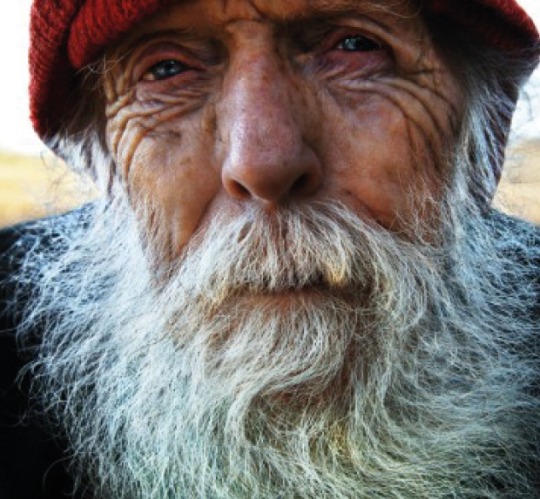

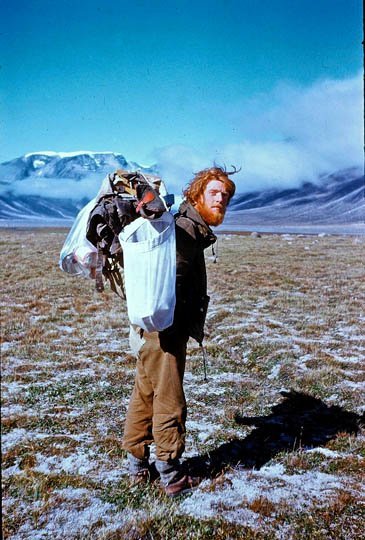
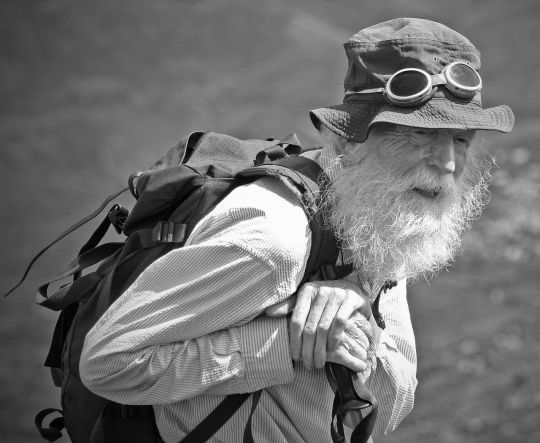

Adam Watson, the Scottish biologist, ecologist and mountaineer was born on April 14th 1930 in Turriff, Aberdeenshire.
From an early age, Watson showed considerable academic prowess. He was Dux of Turriff Primary School and of Turriff Senior Secondary School in Latin, English, Higher Latin, English, French, Science, lower History and Mathematics.
His education continued at the University of Aberdeen in the 1950s, gaining a first class honours in zoology and also the department of natural history's MacGillivray Prize. He gained his PhD in 1956 for his thesis on the Annual Cycle of Rock Ptarmigan, and a second doctorate in 1967 for scientific papers on populations and behaviour of northern animals.
The scientist studied and wrote extensively about plants and animal life in the Cairngorms. RSPB Scotland described Dr Watson, who research included studies of various upland birds, as "arguably the most knowledgeable Scottish naturalist and ornithologist of the last century".
Dr Watson was a well-known figure in Scotland's climbing and hillwalking community. He climbed extensively in the Cairngorms and in Scotland's other mountain ranges. He also climbed and skied abroad, including in Norway, Lapland, Canada and Alaska.
A John Muir Trust Lifetime Achievement Award was among other honours given to Dr Watson. The man dubbed Mr Cairngorms also received the Fort William Mountain Festival's Scottish Award for Excellence in Mountain Culture.
Watson’s research centred on grouse, his magnum opus on the subject, co-written with Robert Moss called Grouse, was a runaway bestseller.
A dam, a natural communicator in speech or the written word also appeared extensively on TV and radio in Scotland, his first broadcast was back in 1948 – Dr Watson’s enthusiasm for the sciences was never less than infectious, and he described his work in simple terms without resorting either to jargon or dumbing down. What made him loved by editors was his ability to read standard situations from a different viewpoint.
Watson’s literary output from the age of 14 runs to an astonishing 475 items including 22 books, hundreds of scientific papers and reviews and 175 unpublished technical reports.
In 1971 he was called to represent the Crown as expert witness at the fatal accident enquiry following the Cairngorm disaster in which six schoolchildren died. His quiet evidence drew not only on law, but on science backed by practical experience of the very worst of mountain weather. He surprised the Forestry Commission when he successfully opposed a particular development not merely on the expected ecological argument, but by astute demolition of the business case.
Doctor Adam Watson died after a short illness on January 23rd 2019, aged 88.
There's a great article taken from his journal that you can read at the link here https://www.ibsc.org.uk/thirty-miles-on-ski-adam-watson-april-1951/#
10 notes
·
View notes